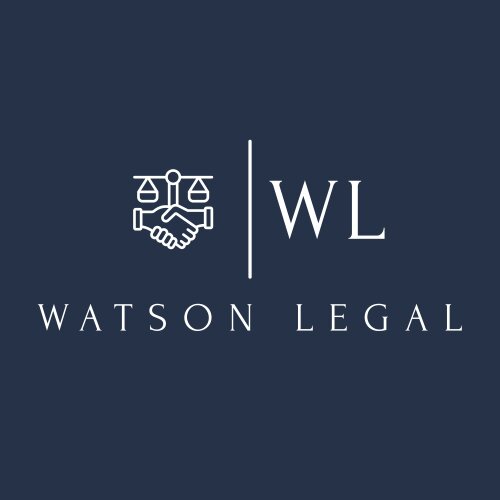Best Brain Injury Lawyers in Athlone
Share your needs with us, get contacted by law firms.
Free. Takes 2 min.
List of the best lawyers in Athlone, Ireland
1. About Brain Injury Law in Athlone, Ireland
Brain injury law in Athlone sits within Ireland’s civil and health care regulatory framework. Personal injuries, including traumatic brain injury (TBI), are typically addressed through civil liability rules and administrative processes overseen by statutory bodies. The Injuries Board, now known as the Personal Injuries Assessment Board (PIAB), plays a central role in many claims arising from accidents or medical negligence.
In practice, residents of Athlone often interact with national rules rather than local ordinances. Yet the local healthcare providers, insurers, and employers must follow the same overarching statutes and regulations. Understanding these processes helps you decide whether to pursue compensation, how to gather evidence, and what timelines may apply in your case.
2. Why You May Need a Lawyer
- Motor vehicle collision near Athlone causing brain injury. A collision on a major route such as the N55 or M6 corridor can lead to complex liability questions. An attorney helps evaluate fault, contributory negligence, and insurance coverage. They also coordinate medical evidence and settlements with PIAB or the court system.
- Workplace accident at a manufacturing or construction site in Westmeath. Employers and insurers dispute the extent of fault or the lasting effects of a brain injury. A solicitor can identify statutory duties under health and safety laws and pursue appropriate compensation.
- Delayed or misdiagnosed brain injury in a Midlands hospital. Medical negligence claims hinge on proper diagnosis, timely treatment, and causation. A solicitor will assess whether duty of care was breached and what damages may be recoverable.
- Permanent cognitive or physical impairment after an accident. Long-term care costs, loss of earnings, and adaptation needs require careful calculation. A legal professional helps quantify both economic and non-economic losses.
- Road traffic or public transport incident involving a minor in Athlone. Claims involving a child or adolescent require specialized considerations for future care and guardianship, as well as relevant time limits for minors.
- Disputes over medical consent, capacity, or rehabilitation planning in the Midlands. If hospital or care decisions affect a brain injury, a solicitor can advise on documentation, consent standards, and appeal options.
3. Local Laws Overview
- Personal Injuries Assessment Board Act 2003 (as amended). Establishes the Injuries Board to assess personal injury claims and issue medical assessments or settlement offers. This regime affects how many brain injury claims begin and progress in Athlone. The Act was enacted in 2003 and the Board began operating in 2004.
- Safety, Health and Welfare at Work Act 2005 (as amended). Creates duties for employers to protect workers from injuries, including brain injuries. It provides the framework for reporting workplace accidents and pursuing compensation where a breach of safety duties is found.
- Road Traffic Act 1961 (as amended). Regulates road safety and liability for injuries arising from traffic collisions, including brain injuries. Amendments over the years impact insurance, claims processes, and eligibility for compensation in Athlone road incidents.
Note: Ireland uses a structured process for personal injury claims that often involves PIAB assessment first, followed by court action only if needed. This approach is designed to provide a faster, streamlined route to compensation in many cases.
Key sources for these laws and their application include: Gov.ie and the Irish Statute Book for statutory text, and the PIAB for claim mechanisms. For general information about rights and procedures in Ireland, consult official government and statutory resources.
Source: Gov.ie - overview of personal injuries framework and statutory processes. Gov.ie
Source: Irish Statute Book - text of the Personal Injuries Assessment Board Act 2003 and related amendments. Irish Statute Book
Source: Personal Injuries Assessment Board - information on how PIAB processes head injury and other personal injury claims. PIAB
4. Frequently Asked Questions
What is PIAB and how does it work?
PIAB is a statutory body that assesses claims for personal injuries. It offers a no-fault assessment and can issue settlement offers after reviewing medical evidence. If you accept an offer, the claim is settled without a court trial.
How do I start a brain injury claim in Athlone?
Begin by collecting medical records, accident reports, and witness statements. Seek initial legal advice, then submit your claim to PIAB or proceed to court if PIAB is not appropriate for your case.
Do I need to go through PIAB before suing?
In many personal injury cases, PIAB provides an initial route to settlement. Some claims may move directly to court if PIAB is not applicable or if a client chooses not to use PIAB.
How much compensation could I get for a brain injury?
Compensation depends on injury severity, care needs, lost earnings, and pain and suffering. Your solicitor can help quantify economic damages and non-economic losses using medical evidence and life-care planning.
How long do brain injury claims typically take in Ireland?
Time varies by case complexity. PIAB processes are generally faster than full court actions, but severe brain injuries may take longer due to medical evaluation and prognosis considerations.
Do I need a solicitor or can I handle it myself?
A solicitor can improve evidence gathering, negotiations, and strategy. For complex brain injury claims, professional representation is highly advisable to navigate medical and regulatory issues.
Can a minor claim be pursued for a child with a brain injury?
Yes. Claims involving minors have special rules and guardianship considerations. Time limits may be adjusted, and courts may appoint guardians to pursue the claim on behalf of the child.
Is medical evidence essential for these claims?
Yes. Detailed medical records, neuropsychological assessments, and prognostic reports are crucial to establishing the injury, its impact, and future care needs.
What is non-economic loss in brain injury compensation?
Non-economic loss covers pain, suffering, emotional distress, and loss of enjoyment of life. These damages differ from tangible expenses like medical bills or care costs.
What evidence helps strengthen a brain injury claim?
Document medical diagnoses, imaging results, rehabilitation plans, daily living impact, employment consequences, and any insurer communications. Timely documentation strengthens credibility.
Can I claim after a road traffic accident in Athlone?
Yes. Road traffic injuries can support brain injury claims under motor liability rules. Ensure police reports, vehicle damage assessments, and medical records are preserved.
How is damages calculated in Irish brain injury cases?
Damages combine economic losses, care costs, and non-economic losses. The assessment considers life expectancy, care needs, home modifications, and loss of earnings.
5. Additional Resources
- Personal Injuries Assessment Board (PIAB) - Statutory body responsible for assessing personal injury claims and issuing medical reports and settlement offers. PIAB
- Health Service Executive (HSE) - National health service body overseeing public health care and rehabilitation services that affect brain injury treatment and follow-up. HSE
- Health Information and Quality Authority (HIQA) - Monitors quality and safety in health and social care services, including brain injury care standards and reporting. HIQA
6. Next Steps
- Gather documentation. Collect medical records, imaging results, accident reports, invoices, and any correspondence with insurers. Timeframe: 1-2 weeks.
- Identify a local solicitor or legal counsel. Seek recommendations from trusted local sources and arrange a preliminary consultation. Timeframe: 1-2 weeks.
- Consult for a case assessment. Bring witnesses, medical letters, and rehabilitation plans for a review of potential claims. Timeframe: 1-3 weeks after initial contact.
- Decide on PIAB versus court route. Discuss with your solicitor whether PIAB is appropriate or if court action is needed. Timeframe: depends on route and readiness.
- Prepare a plan for ongoing care and costs. Include short-term and long-term care needs, housing modifications, and therapies. Timeframe: ongoing.
- Submit the claim formally. File with PIAB or court, following your solicitor’s guidance and the relevant timelines. Timeframe: within the statutory limits for your case.
- Monitor the progress and adjust as needed. Stay in touch with your legal counsel and medical team to update evidence and prognosis. Timeframe: ongoing throughout the process.
Lawzana helps you find the best lawyers and law firms in Athlone through a curated and pre-screened list of qualified legal professionals. Our platform offers rankings and detailed profiles of attorneys and law firms, allowing you to compare based on practice areas, including Brain Injury, experience, and client feedback.
Each profile includes a description of the firm's areas of practice, client reviews, team members and partners, year of establishment, spoken languages, office locations, contact information, social media presence, and any published articles or resources. Most firms on our platform speak English and are experienced in both local and international legal matters.
Get a quote from top-rated law firms in Athlone, Ireland — quickly, securely, and without unnecessary hassle.
Disclaimer:
The information provided on this page is for general informational purposes only and does not constitute legal advice. While we strive to ensure the accuracy and relevance of the content, legal information may change over time, and interpretations of the law can vary. You should always consult with a qualified legal professional for advice specific to your situation.
We disclaim all liability for actions taken or not taken based on the content of this page. If you believe any information is incorrect or outdated, please contact us, and we will review and update it where appropriate.










